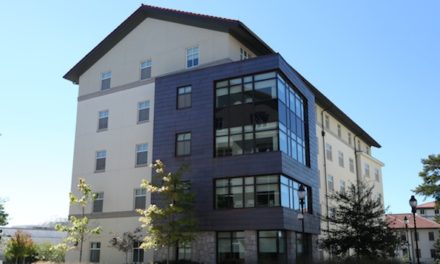For most Emory students, the college application process is a distant memory.
As soon as they arrive as freshmen, the challenges of their senior year of high school quickly fade as the stress of college life quickly replaces them.
The members of the Emory Dream Project, however, have not forgotten college applications. Instead, they have continued to help local high-school students navigate the process.
While students can choose to participate in a variety of tutoring organizations on campus, the Emory Dream Project is unique because it specifically helps high school students prepare for college and careers after graduation.
Founded in fall 2011, the organization is young but growing. With 16 members, including the executive board, the Emory Dream Project sends 10 mentors to Druid Hills High School each week.
Mentors, who visit the school three days a week, tailor each session to meet the needs of their mentees and devote one day entirely to SAT preparation.
After mentors arrive at the school, students begin to filter into a designated classroom. Between four and seven high school students each pair with a mentor. They both then sit down together and discuss what the mentee wants to do after they graduate and research how to make it happen.
In addition to working directly with mentees, the organization has also worked to raise awareness of inequality in education among Emory students by hosting an entire week of events from March 25-29. The events included a trivia night, the showing of a documentary about the pressure on students to succeed in school, a student panel discussion and an opportunity to make art symbolizing educational equality on the Quad.
College sophomore and Emory Dream Project President Kaylee Tuggle said she was most excited about the student panel, which took place on Thursday in White Hall. During the panel, six students who were unaffiliated with the organization spoke about their experiences with the United States’ education system.
The week’s events were ultimately intended to draw attention to the system’s failures, according to Tuggle.
“We’re here representing real students who are left behind by the education system,” she said. “They’re not just statistics – they’re real people.”
Tuggle said the students she works with through the Emory Dream Project remind her of her peers in high school.
She said that many students from her high school didn’t know much about the college application process and now attend a local community college.
“A lot of them know where they are going but a lot don’t,” she said. “They’re often afraid to ask for help.”
Tuggle added that her personal favorite part of working with mentees is helping students realize their potential and make plans for the future.
The Emory Dream Project hopes to expand to other high schools in the future as well as include more career preparation in mentoring sessions.
Still, Tuggle said she would love to involve more mentors and mentees in the program.
“All of us are fortunate to be at Emory because someone helped us get here…” she said. “But a lot of people don’t have anyone to help them. It’s a service to help them.”
– By Elizabeth Howell
The Emory Wheel was founded in 1919 and is currently the only independent, student-run newspaper of Emory University. The Wheel publishes weekly on Wednesdays during the academic year, except during University holidays and scheduled publication intermissions.
The Wheel is financially and editorially independent from the University. All of its content is generated by the Wheel’s more than 100 student staff members and contributing writers, and its printing costs are covered by profits from self-generated advertising sales.




